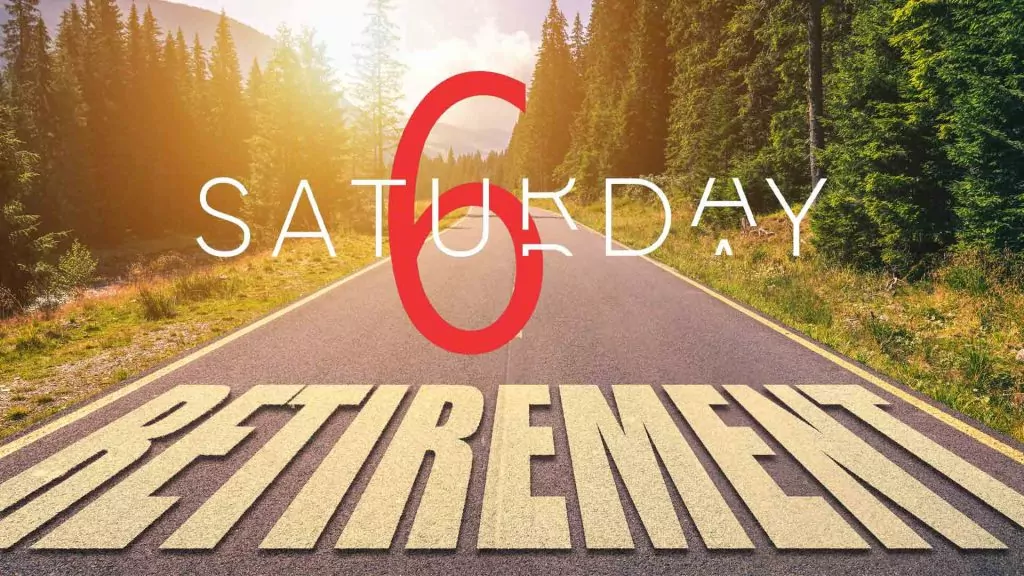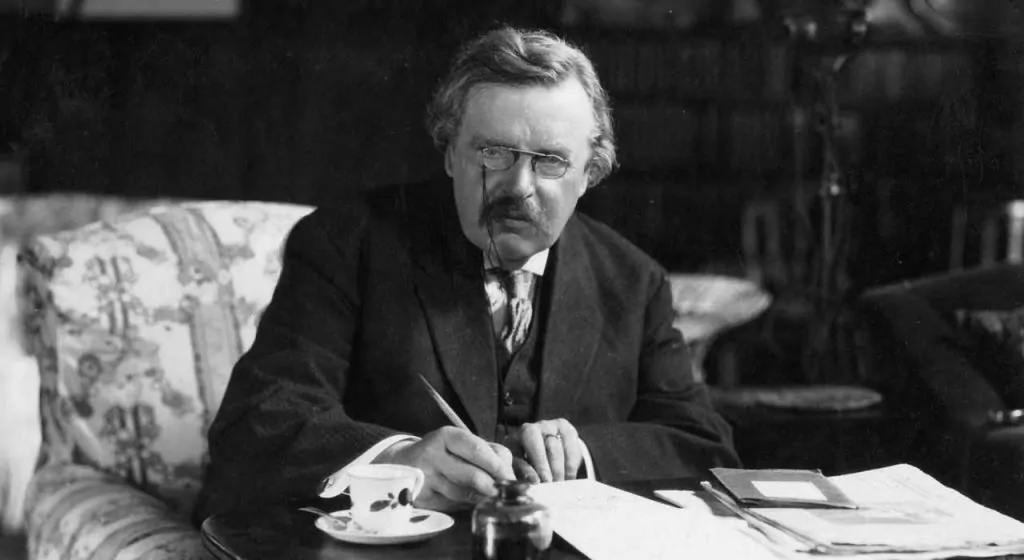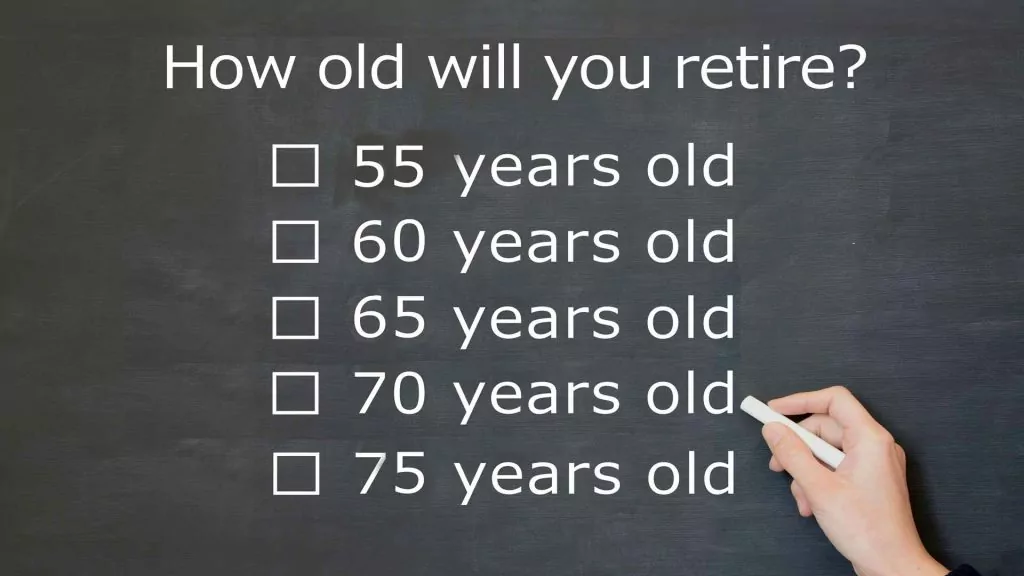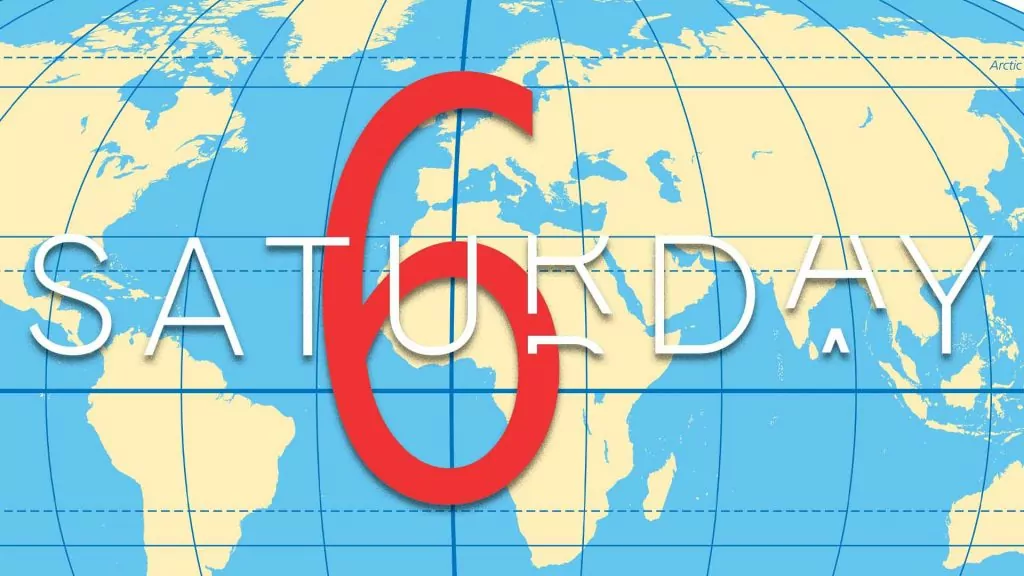Aging in hope!
I am 68 years of age and retired, so I suppose I am considered old. In our politically correct times, I am called either a “senior citizen" or "chronologically gifted."
What is aging? How do we react to it? These questions are no longer academic for me. When I was in my teens, I thought that people in their fifties were old. At this juncture in my life, a fifty-year-old seems relatively youthful. So aging is ambiguous. Bernard Nash describes aging as a paradox: "Does it not strike you that we all want to live longer but none of us want to grow old?"
Throughout our lives we think other people grow older until we gradually realize that we ourselves have aged. Some say that aging can be compared with the fall season when the fruits ripen and the leaves fall; others claim that the moment of aging has arrived when the sum total of memories has become greater than our expectations. Aging, says the American gerontologist Howel, "is not a simple slope which everyone slides down at the same speed. It is a flight of irregular stairs down which some journey more quickly than others."
To grow old also means to lose acquaintances and lifelong friends to distance, illness, and death. Obituaries testify that life is the process of aging, and aging is the steady progress of dying within us. Every moment we are alive, we are aging. Life and death are intimately linked. The day is coming when all our earthly possessions will be swept away, including our ability to enjoy them. This is not a morbid view of life – it is simply reality. As the 17th century poet Robert Herrick wrote,
Gather ye rose-buds while ye may,
Old Time is still a-flying.
And this same flower, that smile today,
Tomorrow will be dying.
So how do we cope with aging? We live in a society that has shown little understanding of growing old, and valued it even less. The Christian literature on aging seems sparse, with far more attention paid to child-rearing. Too little attention has been given to caring for aged parents.
DENIAL CAN'T LAST
It’s seems the fear of aging has contributed to a denial of reality – if we don’t talk about it, maybe it won’t happen to us, right?
This sort of denial is why some find visiting a nursing home a burden. They can't imagine themselves ever being there. They don’t want the reminder of their own mortality.
Our society views frankness about death as deviant, a subject not to be discussed in polite company. For many death is the last taboo in Western culture; for others it has become an exploited sentimentality: people don't attend funerals anymore, but instead “celebrations of a life lived.”
And when they do talk about death, it is to make light of it, with styrofoam tombstones on the front yard on All Hallows’ Eve. But their atheistic naturalism leaves them unable to face the brute finality of death. And because they are unwilling to return to a biblical perspective, a new generation puts their faith in reports of out-of-body experiences and in New Age mysticism.
Still, try as it might, the world cannot keep death out of sight and mind. The moment we are born, we begin to die.
PERPETUAL TEENAGERS
The world’s death denial is evident, too, in how it is now a common goal among the aged to stay young. Or, rather, not just stay young, but stay immature. Whereas in the past becoming an adult was the ideal, today the older generation wants to look as young as possible, with some trying to camouflage their age by dressing like teenagers.
In his own inimitable and not very flattering way, British journalist Malcolm Muggeridge reported on a month he spent at a resort in Florida. He said that everything was done to make senior citizens feel that they were not really aged, but still full of zest and expectations; if not teenagers, then keenagers. These seniors, he said, had withered bodies arrayed in dazzling summer wear, hollow eyes glaring out of garish caps, skulls plastered with cosmetics, lean shanks tanned a rich brown, bony buttocks encased in scarlet trousers. Muggeridge's description may be exaggerated, but it does say something about the affect contemporary youth culture has on our society. It has a negative and morbid view of aging.
FOREVER ON EARTH?
The advertisement industry contributes to this mood. Wherever we look, there are ads for anti-aging creams, yoga routines, nutritional programs, and medical interventions. Growing old is seen not so much as part of the human condition but rather as a solvable medical and scientific problem. Hence, doctors and scientists search for a solution to the "problem of old age."
What are the chances that scientific advance will find a way to extend life indefinitely? A number of investors have paid large sums to have their bodies frozen at death by means of cryogenics, which is used to freeze beef and vegetables, as well as people. But as Dr. Russell points out in his secular work Good News About Aging, those who cherish dreams of being defrosted and living forever some time hence are probably cherishing an implausible dream because freezing destroys human body cells. He adds:
"…even if we can overcome this and other problems, no scientific evidence suggests that we can expect to eliminate death now or in the future because all things break down over time."
And what if we could live forever? In our fallen world, would we really want to? In his 1922 play The Makropulos Secret, Karel Capek probes this issue with the 337-year-old character Emilia, who notes:
"… no one can love for three hundred years – it cannot last. And then everything tires one. It tires one to be good, it tires one to be bad. The whole earth tires one. And then you find out there is nothing at all: no sin, no pain, no earth, nothing."
What a hideous future! To be given an everlasting longevity without being regenerated by the Holy Spirit, without hope to be with the Lord in the new heaven and earth, is a dismal prospect. It is to live under a curse.
If we could live on in this world with all its pain, conflicts, without solving the immense human problems, a medically-expanded life would simply set the stage for more of same human conflicts and social injustices.
IMPATIENCE INSTEAD OF HONOR
Death denial is also evident in our youth’s treatment of the elderly. Aging frustrates modern youth – it interferes with their desire "to get things done." Have you ever noticed the impatience shown in a lineup at the bank when a senior is trying to carry out a transaction? Their slower pace often exasperates the clerk and the younger customers waiting for their turn. These young people can’t imagine ever being in the same situation. Sure, other people age…but not them.
The conflict between the generations is a subject of much discussion. Many seem to view aging as a process to endure and suffer through, rather than as a temporally contingent gift from God to be approached with gratitude. The Canadian philosopher George Grant observed that old age is more and more seen as an unalleviated disaster, not only for those outside of it but by those people who are old themselves. And he noted that we do not see age as that time when the eternal can be realized, and we therefore pity the aged as coming to the end of historic existence.
Sociologists even refer to ageism, which can be defined as a general distaste for the elderly in our culture – equivalent to racial prejudice, but in this case unfair generalizations are made about any who are old: “all elderly people are forgetful," "all elderly people are ill-tempered," "all elderly people suffer from depression,” or “mental impairment is endemic to aging.” Contrary to the myth about aging, seniors do not necessarily decline in intelligence or lose their decision-making abilities. History gives us countless examples of creative, active, and productive seniors.
At 71, Michelangelo (1475-1564) was appointed the chief architect of St. Peter's Cathedral in Rome.
After he was 63 years old, Joost Van den Vondel (1587-1679), Holland's greatest poet, wrote Jephta, Lucifer and Adam in ballingschap (Adam in exile).
George Bernhard Shaw (1856-1679), Irish dramatist and author, wrote Farfetched Fables at 93.
Polish-born Arthur Rubinstein (1888-1982) gave a stunning performance at Carnegie Hall at the age of 90.
Like these famous people, there are millions of elderly people who are still productive and active in their own way and want to remain so. Ageism seems to comes about because people know little about old age, and because what they know is based on myth and fear.
People even talk about generational wars. In recent years, the conflict between the generations has become most noticeable due to the decreasing ability of government to pay for health and pension benefits. The pinch is already provoking generational conflict in the ambitious welfare states of Northern Europe, where birthrates and immigration rates are lower than in the United States and where the elderly wield considerable political clout. Young Europeans are complaining about the high cost of healthcare for the elderly, and are resentful of fees that are eroding the tradition of free university education. One German youth leader gained notoriety by suggesting that old folks should use crutches rather than seek expensive hip replacements.
Unfortunately, this generational conflict is also seen in churches today. Seniors don't like to call their dominee “pastor Jack” and they certainly don’t like his casual appearance when he comes visiting. But when a vacant church thinks of calling a pastor there is a strong emphasis on youth. It seems that some search committees look for a twenty-five-year-old man with thirty years of experience.
A CHRISTIAN ALTERNATIVE
The differences between the generations don't need to lead to conflicts. Christians can offer alternative understandings of aging. The Bible views the conflict between generations as abnormal. Yes, youth is a wonderful thing, but it is not the only thing. It is a blessing in many ways, but it can, on some occasions even be a curse. When Isaiah pronounced judgment on Jerusalem and Judah, he said, "I will make boys their officials; mere children will govern them" (Isa.3:4).
Young and old can come to mutual understanding and appreciation of each other. In the Kingdom of God, "Children's children are a crown of the aged, and parents are the pride of their children" (Prov. 17:6). Old men dream dreams and young men see visions (Joel 2:28; cf. Acts 2:17). And God promises that He will be with His people of every age bracket. "Even to your old age and gray hairs I am He, I am He who will sustain you" (Isa. 46:4).
So how do we face the twilight years of life? With feelings of dread… or of hope? Let’s delve further into God’s Word and see.
AGING IN THE OLD TESTAMENT
In the Old Testament we find that God regards great age as the supreme reward of virtue. The aged were shown respect and honor. Old age is a blessing and not a curse. Scripture says, "Rise in the presence of the aged, show respect for the elderly and revere your God" (Lev.19-32).
The psalmist testifies to growing old in hope. He says,
"The righteous ... will still bear fruit in old age; They will stay fresh and green, proclaiming, The Lord is upright; He is my Rock, and there is no wickedness in him" (Ps. 92:14-15).
Growing old became a symbol of blessing, wisdom, and righteousness – an honorable process by which God rewarded those who were obedient, for example, in honoring their own parents: "Honor your father and your mother, so that your days may be long in the land that the Lord your God is giving you" (Ex. 20:12).
In Proverbs readers are essentially promised a long life if their hearts will but, “keep my commandments; for length of days and years of life and abundant welfare they give you" (3:1-2). The very display of gray hair itself, a sure sign of growing old throughout the centuries, becomes in Scripture "a crown of glory; it is gained in a righteous life" (Prov. 16:31).
By pushing the elderly aside to fringes of society, we diminish them and make our society the poorer through the loss of their experience and maturity. When Moses was 80 years old, God called him to lead His people to the Promised Land. At that greatly advance age, Moses became the historian, leader, and statesman of Israel. At about 85 years of age, Joshua was divinely commissioned to succeed Moses. At his death at 110 years of age, he was deeply mourned and his eminent service widely acknowledged (Josh. 24:29-31).
A NEW TESTAMENT BLESSING TOO
In the New Testament the attitude towards aging is no different from that in the Old Testament. Those who reached an advanced age were honored and esteemed in the community. Aged saints have a significant role in the opening chapter of Luke's Gospel. The first characters to appear on the stage are the priest Zechariah and his wife Elizabeth, who were both "advanced in years" (Luke 1:7). They are the instruments of God's purposes and the first interpreters of God's saving acts.
Simeon and Anna are the prophetic chorus welcoming the child Jesus on the occasion of his purification in the Temple (Luke 2:22-38). The remarkable thing is that the aged Simeon dies in the beginning of the Gospel account. His eyes are fixed in hope on the one newly born, in whose life, death, and resurrection the world will know peace. He has long been hoping for "the consolation of Israel," and has been promised by the Holy Spirit that he will not die before he has seen the Lord's Messiah. Anna – an eighty-four-year-old prophetess who frequents the Temple to worship and pray night and day – recognizes Jesus, gives thanks to God, and declares the news about him "to all who were looking for the redemption of Jerusalem" (2:38). As people who have clung to God's promises over many years, they embody the virtues of long-suffering patience and trust in God's ultimate faithfulness. They also exemplify faith and hope, even when circumstances seem hopeless.
Aging was not seen by the early Christians as a "problem" to which some sort of religious solution was required. In the entire New Testament, particularly in the Pastoral Epistles, the respect due to older members of the community is emphasized. The exhortations imply and speak explicitly of dutifully caring for widows, honoring the elderly, imitating their faith, and faithfulness. For example, "Do not rebuke an older man, but exhort him as you would a father." Here we find also specific directives that the community should provide assistance to widows over age of sixty, and that women recognized by the Church as widows should devote their energies to prayer, hospitality, and to service to the afflicted (1 Tim.5: 3-16).
In our youth obsessed culture, the elderly are strongly tempted to act youthful. They are expected to get a workout to remain in shape, get beauty treatments to rejuvenate themselves, and to dress in youth fashions. Should seniors long to be young again? I don't think so. For Christians old age is not a dead-end street. As we age, we can still grow spiritually. The apostle Paul wrote to the Corinthians "Do not lose heart. Though outwardly we are wasting away, yet inwardly we are being renewed day by day" (2 Cor. 4:16). He said to the Ephesians that we can progressively succeed in putting off the old self and putting on the new self and "be made new in the attitude of our minds." This renewal through the Holy Spirit impacts our mental attitude, state of mind, and disposition with respect to God and His world throughout our life. In other words, we continue to develop our walk with God (Eph. 4:22-24).
NEVER TO OLD TO SERVE THE LORD
Dr. Viktor E. Frankl, who suffered unspeakable horror in Nazi concentration camps, says that there is no reason to pity old people. And he adds this remarkable statement, "Instead, young people should envy them." Why? Because seniors have something young people don't possess. Frankl says that seniors have realities in the past – the potentialities they have actualized, the values they have realized – and nothing and nobody can ever remove these assets from the past.
In Book X of his Confessions, Augustine (354-430) calls memory a "vast court" or "great receptacle." The elderly have a rich storehouse of memories, and inner landscape to explore: times lost in idleness, opportunities well used, a fulfilling career, children grown up, and suffering gone through with dignity and courage. What an opportunity for our youth to tap into the memories of their grandparents! Covenantal obligations never cease. The Christian faith is passed on from one generation to the next. It depends on that transmission. That’s why there must always be a most intimate relationship between the present and the coming generation if there is to be a future generation of Christians.
The Church cannot be the Church without the elderly. They are the embodiment of the Church's story. Of course, we do not expect that all the elderly will be able to express the "wisdom of their years." But there can be no substitute for some old people in the Church passing on their wisdom to the younger generation.
The youth simply cannot do without the older generation. In our culture, for a few years young adults may pretend (egged on by social and cultural forces) that they can live forever as autonomous, self-reliant, self-fulfilling beings. The pretense, however, collapses soon enough. The presence of the visible vulnerable elderly is a reminder that we are not our own creators. All of us will age; dark and blond hair will turn grey. Consequently, young Christians need the elderly so they will not take their lives for granted. I will say it again: the Church cannot be the Church without the elderly. That's why throughout history the Church has frowned on separating the young from the old through conducting youth services. I have even read about a Church where no older people were expected to attend. But according to Scripture old and young belong together. They are all part of the great family of God.
Our covenant youth need to hear from their grandparents and seniors in the Church what it means to be a Christian. Grandparents know the family traditions and values. They can tell the story of their wartime experiences, their immigration with its hardship and adventures, and the reasons for leaving the country of their birth. Seniors can give to the youth the lessons and spiritual resources that have been harvested over a lifetime.
Our times are so confusing and threatening for our young people. Why not explain to them that the Christian faith is for all of life: hence the founding of Christian schools, colleges, universities, a Christian labor association, Christian magazines and bi-weeklies, and a Christian political party? Why not tell them that doing good works is doing your work well? Why not testify to them how the Lord's promise "Surely I am with you always" (Matt.28:20) is a reality and not a myth? The lessons learned from godly grandparents and other Christian seniors are often long remembered.
HOPE IN CHRIST
As we age, we become more aware of the swift passing of years. We can either let the fear of death put a mental stranglehold on us or we can look to the future with hope. Let’s remember, the best is yet to come! Jesus Christ, the risen and ascended Lord is the ground of our hope and the promise of our deliverance.
The hope of the resurrection lies at the heart of the way in which Christians embody the practices of growing old. We serve a faithful God who will never forget us! We are strangers and pilgrims on earth, the older we become the nearer we are to our eternal home. This truth encourages even the oldest individual to cherish each moment of life while preparing to relinquish it. Each day is a gift from God. We look to Him for our daily bread while making sure that we seek first the kingdom of God rather than squandering our time and energy on secondary concerns. With the prospect of a glorious future for all who are in Christ, we can identify with Martin Luther's suggestions that "in the purpose of God, this world is only a preparation and a scaffolding for the world to come." I also think of John Calvin's teaching in his Geneva Catechism that we are "to learn to pass through this world as though it is a foreign country, treating all things lightly and declining to set our hearts on them."
We all face death some time or another. When we are old, it is more of a reality than in the days of our youth. I pray that our attitude toward death may resemble that of Lutheran pastor, scholar, and resistance leader Dietrich Bonhoeffer, who with shining face in joyful expectation, said to the two Nazi guards who had to come to take him to be executed, "For you it is the end, for me the beginning."
Rev. Johan Tangelder (1936-2009) wrote for Reformed Perspective for 13 years and many of his articles have been collected at Reformed Reflections. This is an edited version of a two-part article that first appeared in the 2004 November and December issues. ...































